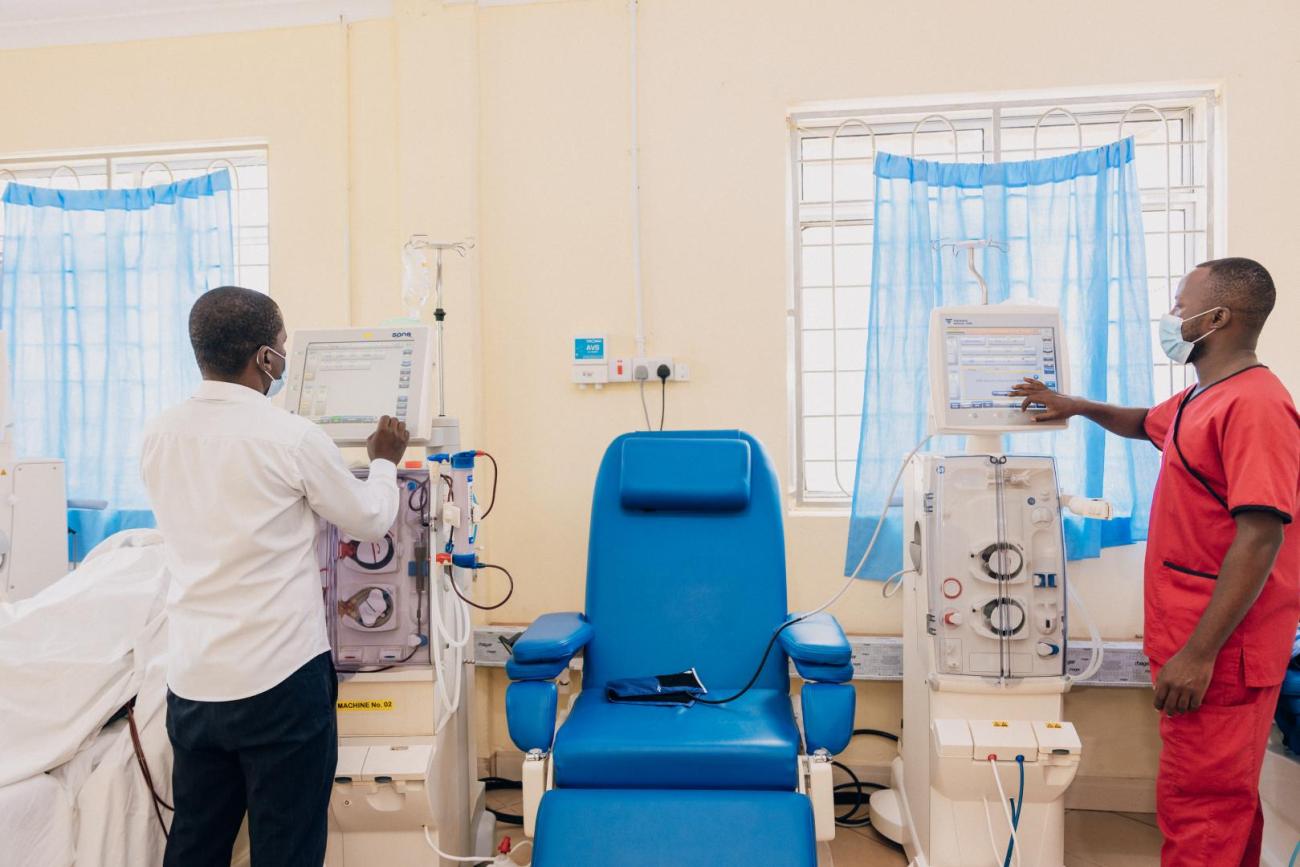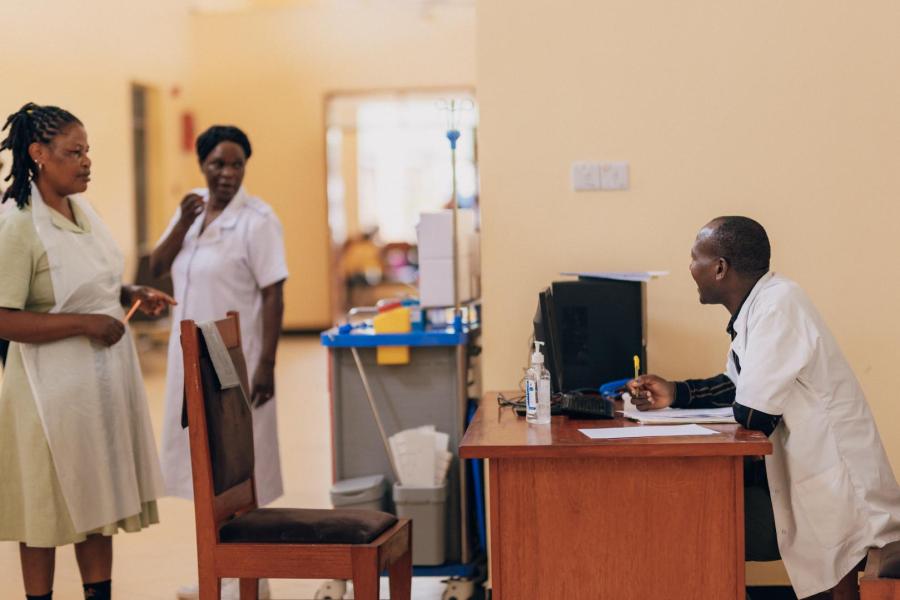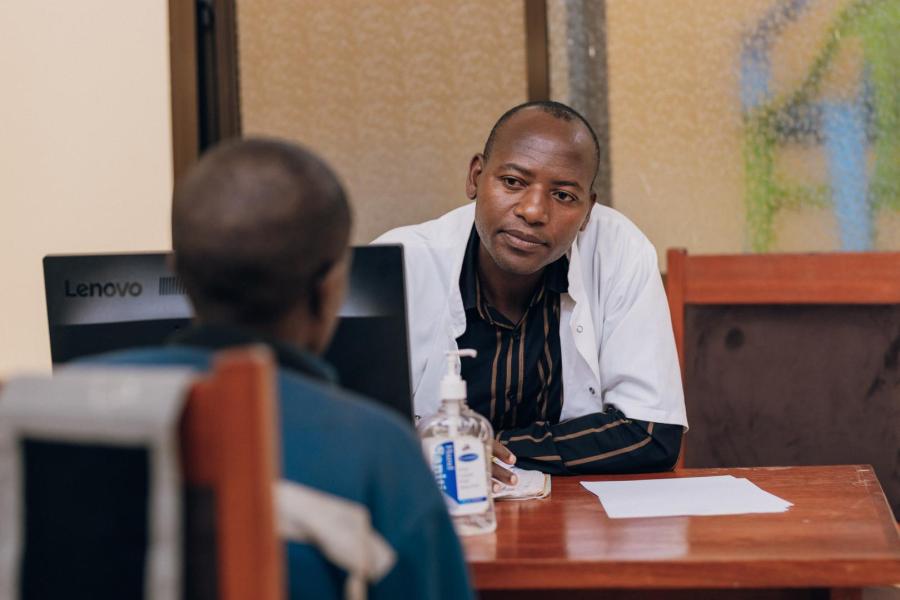Tanzania’s successful Marburg outbreak control helps bolster emergency preparedness

A year since the Marburg Virus Disease (Marburg) outbreak in Tanzania was declared over in June 2023
Dar es Salaam – “I remember hearing the news that I was infected with Marburg like it happened yesterday. It was one of the most challenging periods for me,” recalls Dr Mahona Jumanne Ndulu, who works at Bukoba Regional Referral Hospital in Tanzania’s Kagera region in the north.
A year since the Marburg Virus Disease (Marburg) outbreak in Tanzania was declared over in June 2023, memories of the disease, which was controlled in a record 90 days, remain fresh in the minds of survivors. A total of nine cases (eight confirmed and one probable) and six deaths were recorded. The outbreak response, supported by the World Health Organization (WHO) and partners, has helped strengthen the country’s public health emergency preparedness and response.
Notably, the refurbishment of the Mutukula Border Isolation Unit in the Kagera region is just one aspect of the government’s Marburg Virus Disease recovery plan. Through funding from the United States Agency for International Development (USAID) in Tanzania, this initiative has significantly enhanced the country’s capacity to detect, prevent, and respond swiftly to public health outbreaks and emergencies.

Tanzania is a popular tourist destination bordered by eight countries, including some that have long struggled with outbreaks of both Marburg and Ebola. With its Mutukula border post as one of the busiest crossings, the new facility has a pivotal role to play in the timely screening and isolation of suspected infectious disease cases, helping control community disease transmission.
“Previously, we used an old, dilapidated tent that accommodated both male and female suspected cases. The conditions were not favourable at all. We are grateful to WHO and its partners for the immense support in fighting outbreaks, especially the support during the Marburg outbreak,” says Salum Rajab Kimbau, Regional Vaccination Coordinator for Kagera.
Dr Ndulu echoes this view. "As a health worker who was exposed to a deadly virus before there was a diagnosis, I believe that having the newly refurbished Mutukula isolation unit is going to be significant in protecting health workers like myself, and communities, from infectious diseases.”

Since the outbreak, WHO has supported the Government of Tanzania in providing infectious disease management training to over 200 environmental health officials, community health workers, medical attendants, and religious leaders from eight districts in the Kagera and Mwanza regions.
WHO supplied 14,220 infection prevention and control (IPC) standards of operations and checklists, prepositioned and utilised in 106 health facilities, which were assessed and monitored for IPC compliance. With support from the United Kingdom’s Foreign, Commonwealth and Development Office, WHO also trained 35 IPC focal people from health care facilities across districts in the Kagera region, enabling them to establish IPC committees within these facilities. WHO was also able to facilitate the delivery of two dialysis machines to Bukoba Regional Hospital to support essential health care during outbreaks, with support from USAID.
To support their recovery from outbreak-associated shock and depression, 1,400 people affected by the consequences of the Marburg outbreak also received counselling and psychological care.
Marburg is highly virulent and causes haemorrhagic fever, with a fatality ratio of up to 88%. It is in the same family as the virus that causes Ebola virus disease. Illness begins abruptly, with high fever, severe headache, and severe malaise. Many patients develop severe haemorrhagic symptoms within seven days.
Reflecting on the situation one year after the end of the outbreak, Dr Charles Sagoe-Moses, WHO’s Country Representative in Tanzania, said significant advances had been made that would help the country cope even more efficiently with the next outbreak. “If the Marburg virus outbreak has taught us anything, it is that we must stay alert and always be prepared to respond to emergencies. So, this is no time to let down our guard," he says.


